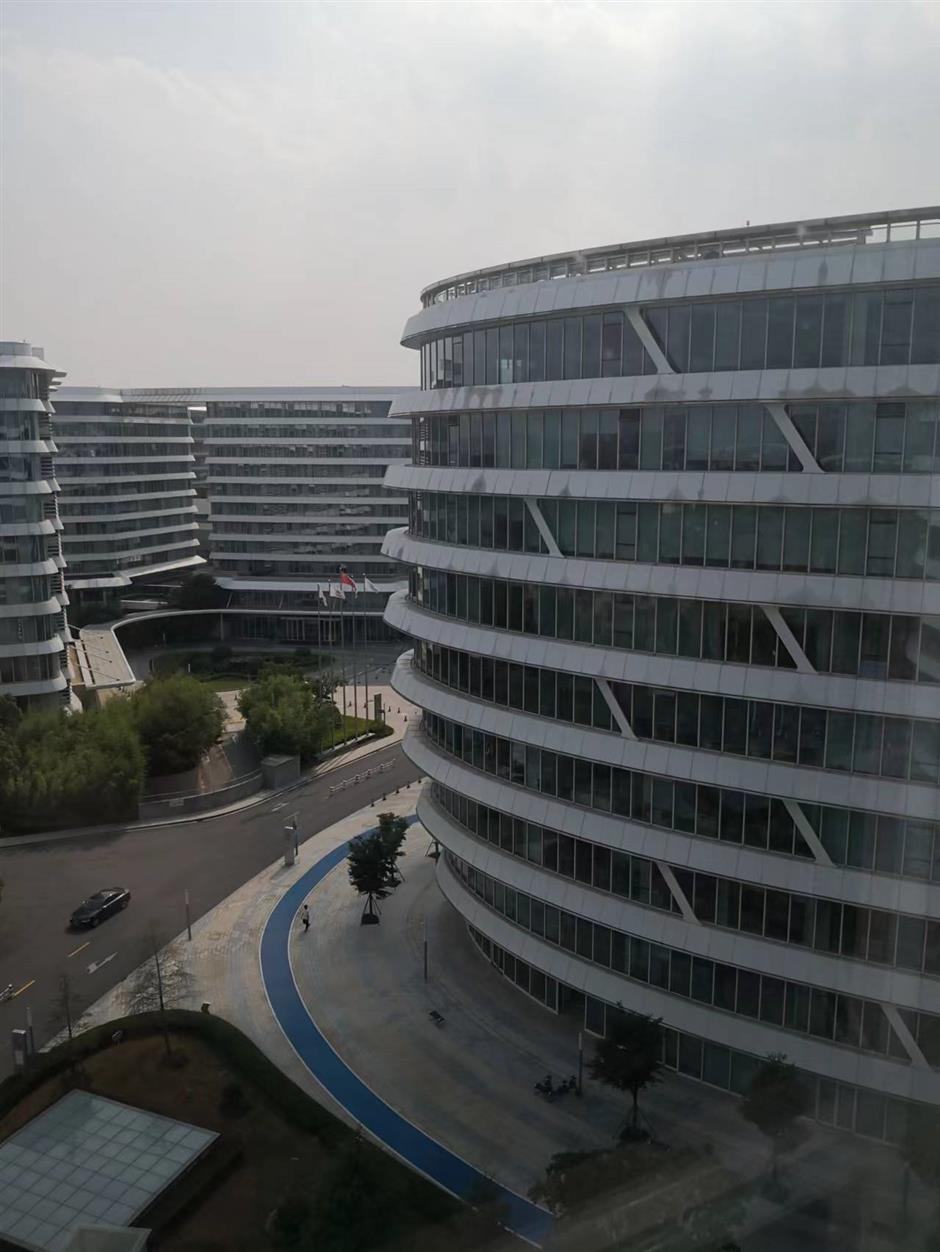Technology startup copes with yo-yo effects of post-lockdown

Shanghai-based tech startup Yo-i is now facing a less lofty challenge – coping in a post-lockdown environment.
Shanghai-based Yo-i, an information technology services and consulting startup that champions the concept of an industrial future framed in green, is now facing a less lofty challenge – coping in a post-lockdown environment.
The company, which provides services in digital transformation and cloud-based software, is striving to get back on track as the city's lockdown measures are lifted, but the transition back to normal operations has been hampered somewhat by its location.
Yo-i, which employs more than 130 people, is housed in a Greenland office building on Zhuguang Road – a short walking distance from what was the city's biggest temporary hospital for coronavirus patients or close contacts.
The National Convention & Exhibition Center (Shanghai) makeshift hospital, known as fangcang, housed 174,000 positive and asymptomatic patients during 54 days in April and May, accounting for 30 percent of total capacity in temporary medical facilities.
It was closed on May 31, followed by "deconstruction and environmental disinfection work," according to media reports.
The makeshift hospital may be a thing of the past, but its legacy continues to affect nearby buildings, including the one where Yo-i is headquartered.
The nearby Xujing East Metro Station remains closed, which makes commuting to work more difficult. Staff have to walk or use shared bikes to get to the office from the next closest station.
"That can mean walking up to 40 minutes a day," said Linda Huang, a general administrative director at Yo-i.
Yo-i has adopted flexible work schedules to cope with current situation. Some employees who live especially far away from the office work from home.
Huang said the company is taking no chances when it comes to employees getting quarantined in the office if restrictions are tightened once again.
"It's unacceptable," she told Shanghai Daily.
During the April and May lockdown, the Greenland office buildings were restricted to "closed-loop management," effectively meaning that employees had to live in the office, without canteen or shower amenities.
Because of that, Yo-i told all its employees to stay at home.
In late May, Yo-i was included in the first group of "white-list" firms allowed to resume operations.

A view from the window of Yo-i's office, which is a walking distance from the National Convention & Exhibition Center (Shanghai) that was converted into the city's biggest COVID-19 makeshift hospital then.
Smaller businesses like Yo-i are the backbone of China's economy. They are a prime employer of millions of workers. Their ability to survive and prosper again is the key to getting the post-lockdown economy up and running again.
Yo-i, whose main clients are steel and nonferrous metals companies, is aiming to "boost China's industrial energy-saving and efficiency by 1 percent of GDP," according to its website.
Since its founding in 2016, the company has grown rapidly, in terms of staff and revenue. Its ambitions dovetail nicely with China's long-term digital and environmental strategies.
In a bid to pursue green growth, China has announced that it will strive for peak carbon dioxide emissions by 2030 and achieve carbon neutrality by 2060.
The resurgence of novel coronavirus this year has thrown a monkey wrench into Yo-i's smooth development. Lengthy lockdowns have affected customer service, business trips, capital flows and expansion plans.
Because of strict COVID-19 requirements imposed in other areas of China, it's difficult for Yo-i to dispatch workers out of town. For example, staff wishing to visit clients at ongoing projects in Henan and Shandong provinces would have to quarantine up to 14 days in those places, even if they could produce a negative PCR test.
The company does offer services online but business trips are necessary for customized demands and on-site supports. Also In China, face-to-face contact is considered crucial for strong business relations.
Clients are generally sympathetic to Yo-i's plight, though that doesn't diminish their concerns about the future of projects they have invested in.
Challenges facing Yo-i also include fixed overhead costs like rent and employee pay. The company has endeavored to fulfill payrolls even facing financial pressures, Huang said.
The company had planned to increase its staff by 50 percent this year, but that's now in limbo.
Disappointed but not daunted, the company is taking every step possible to keep operations as normal as possible and "minimize the influence and risks of COVID-19 as soon as possible," Huang said.
















